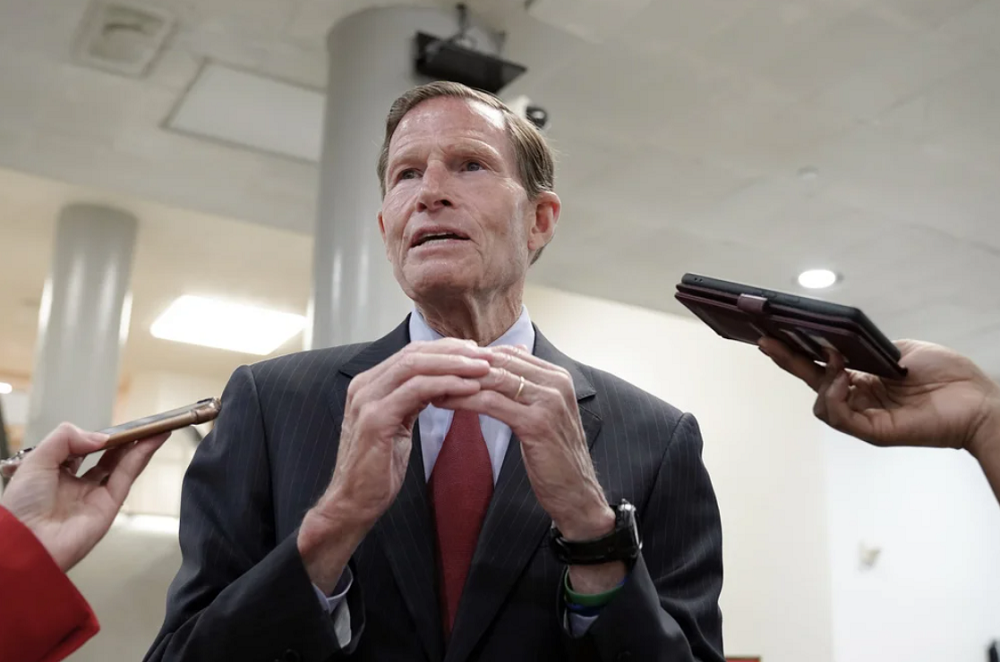Zona de Azar USA – Proposed US Legislation Aims to Tackle Problem Gambling in Sports Betting


USA.- January 18th 2024 www.zonadeazar.com As the landscape of legal sports betting expands in the United States, lawmakers on the national level are introducing a bill to address the issue of problem gambling.
On Thursday, US Senator Richard Blumenthal (D-CT) and US Representative Andrea Salinas (D-OR) put forth the Gambling Addiction and Recovery, Investment and Treatment Act, known as GRIT, utilizing tax revenue from US sports betting. This legislative initiative aims to create the first federal funding mechanism specifically for the treatment, prevention, and research of gambling addiction.
“The increasing legalization of sports and online betting, combined with the convenience of placing bets via mobile phones, has created an ideal environment for the proliferation of gambling addiction,” remarked Blumenthal in an official statement.
“The allocation of dedicated federal resources to directly combat problem gambling will offer crucial support, resources, and treatment for those grappling with gambling addiction. With a surge in the number of Americans affected by gambling addiction, legislation like the GRIT Act is more essential than ever.”

How would GRIT impact US sports betting?
According to the release, gambling addiction incurs an annual social cost of $7 billion in the US. GRIT proposes directing existing federal excise tax funds from sports betting toward research and treatment.
“Gambling addictions are causing harm to numerous families, children, and communities in Oregon and throughout America. Unlike addictions to alcohol and drugs, there are currently no dedicated federal funds aimed at combating problem gambling,” stated Salinas in the release. “Our legislation will provide essential resources to states and nonprofit organizations, fostering new research and ensuring increased accessibility to treatment and recovery. This presents a practical solution, and I encourage my colleagues to join us in endorsing it.”
The proposal seeks to allocate funds to support state health agencies and nonprofits while advancing research on responsible gambling at a national level, as outlined in the release.
Breakdown of GRIT for US sports betting
GRIT proposes earmarking 50% of federal sports betting tax revenue for the treatment and research of gambling addiction. Of this amount, 75% would be allocated to state-level programs.
“State health agencies and nonprofits should not bear the sole responsibility of addressing gambling problems,” commented Gina Parziale, Executive Director of the Oregon Council on Problem Gambling. “As the Federal Government benefits from gambling as a source of income, it has a duty of care to its citizens to take measures to minimize gambling-related harm.”
The remaining 25% would be allocated to the National Institute of Drug Abuse to fund grants for research on gambling addiction. Additionally, the proposal would mandate that the Secretary of Health and Human Services submit a report to Congress on the program’s effectiveness within three years of passage.
What is the federal excise tax?
The US government currently imposes a 0.25% tax on the handle of sports betting across all markets. Since the end of the Professional and Amateur Sports Protection Act (PASPA) in 2018, sportsbook operators have contributed over $500 million in federal excise tax. In 2022 alone, operators paid over $235 million.
While the federal government presently collects excise tax on sports betting, there have been multiple legislative attempts to abolish the tax. Last year, two US representatives sponsored a bill to eliminate the tax, a proposal also put forth in 2020 and 2021.
Rising concerns about problem gambling
Research by the National Council on Problem Gambling (NCPG) indicates a 30% increase in the risk of gambling addiction between 2018 and 2021.
The estimated $7 billion social cost includes expenses related to criminal justice and healthcare, according to the NCPG. It also encompasses job losses and bankruptcies.
“The introduction of the GRIT Act underscores our shared commitment to mitigating harm related to gambling and addressing the challenges of gambling addiction,” stated NCPG Executive Director Keith Whyte in a release. “This groundbreaking legislation lays the groundwork to significantly enhance resources for preventing, researching, and treating gambling addiction, making a positive and lasting impact on individuals and communities nationwide.”
Blumenthal’s focus on gaming
Blumenthal’s advocacy for funding support for problem gambling is not his first involvement in the realm of sports betting.
Last year, the Connecticut lawmaker reiterated his call to end partnerships between collegiate sports and betting.
Following Blumenthal’s increased attention to these partnerships, several operators terminated their agreements with universities, including PointsBet and the University of Colorado, and Caesars with Michigan State University.
Edited by: @MaiaDigital www.zonadeazar.com